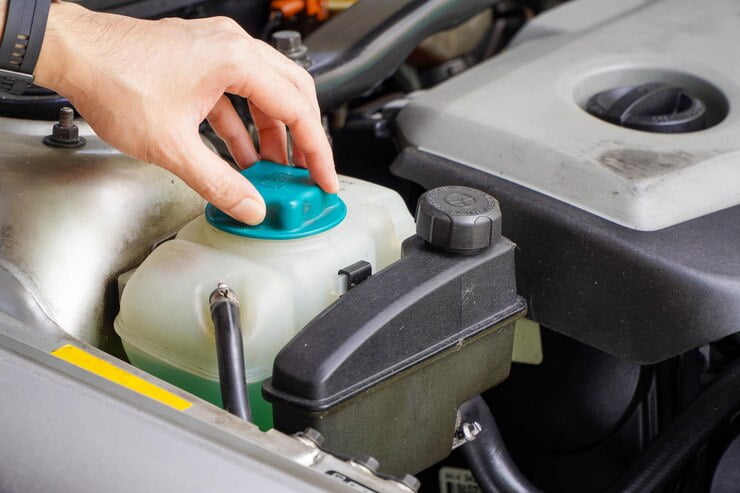
It’s always concerning when you notice something different with your car, especially when that involves fluid loss. To coolant, your vehicle car users are using various types of techniques. One is very common trick is just to open up the bonnet as fast as possible and let the cold air come through the car’s engine.
Your natural reaction is to panic but understanding what is causing the fluid loss can help you know when to book a routine car service in North Sydney and when to stop driving and get immediate help.
The Role Of Coolant In Your Vehicle

Depending on your car, you will either top the coolant up in the radiator or the expansion tank. There should be a minimum and a maximum line. If you check it weekly, you’ll soon notice that the fluid level is constantly dropping.
The coolant goes through the radiator. At the same time, cold air passes through the radiator, aided by a fan, and cools the coolant. This then travels through the engine, helping to keep it cool. The heat of the engine warms the coolant, which is why it goes around in a circle and is re-cooled by the radiator.
In this way, the engine stays at the right operating temperature.
Common Reasons For Fluid Loss

There are several reasons:
1. A leak
A small leak in the pipes that run around your engine bay is not easy to find, especially if the vehicle only leaks when it is under load. This will cause the fluid levels to drop slowly. You can keep driving the vehicle provided you maintain the coolant level.
2. Head gasket failing
This is a significantly bigger issue. The head gasket separates the top half of the engine from the bottom. It ensures oil can circulate without coming into contact with the water. When the head gasket starts to fail, the water and oil will mix, and you’ll use more water.
Generally, the easiest way to check for this is to remove the oil cap if there is a creamy deposit on the inside of the cap, your oil and water mix.
If this isn’t dealt with, the engine will overheat, and you’re likely to warp the head. The antifreeze in your oil can also damage your pistons and cylinders. At best, you’ll need an engine rebuild, you may even need a new engine.
Related Resource: Understanding The Different Types Of Engine Oil
3. Overfilling
Coolant loss can simply be a result of overfilling the system. This can be a vicious circle. If you’re filling the fluid to past the maximum level, the coolant will be pushed out of the overflow tube. This ensures the pressure doesn’t get too high in the cooling system.
Of course, when you check the coolant, it will appear lower. You’ll refill it and restart the cycle!
Equally, if you’ve just refilled the coolant and either forgotten to put the lid on the system or not secured it properly, steam will escape, causing you to lose coolant.
4. Bad Belt
If your drive belt is starting to slip, then the coolant system may not be operating efficiently. This means the engine will get hotter and more coolant will evaporate, reducing the amount in the system.
If your temperature gauge is higher than usual, check your drive belt. It could be starting to slip and needs replacing as soon as possible.
5. Your Car’s Water Pump Is Not Working
If your car’s pump is in critical condition, there is a chance your coolant is not going to work. This car’s pump is driven by the belt. This belt is located in the lower part of the engine near the drive belts.
It is also connected to the lower hose of the radiator. If the hose connections are not tight enough, there is a chance that the pump will malfunction.
It may also suffer some external damage, which causes the springs to leak when the water pump has problems that will go to prevent it from moving the coolant. When a water pump has a problem, it is not going to move the coolant through the system. As a result, your engine will eventually overheat the system.
Wrappining It Up:
There can be various reasons for the not functioning of the coolant. But if you find this issue, it will always be better to consult the technicians or an expert person who will go to look after the whole matter. For the car’s engine diagnosis, you will go to require a whole system that leads you to a more stable solution. What diagnosis process are you going to follow? Let us know your opinion through the comment sections.
Read Also:




























